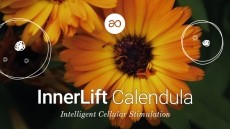Caffeine could help protect against UVB-induced skin damage
The scientists decided to study the protective potential of caffeine on human cells in vitro as a number of epidemiological studies have hinted at a link between the consumption of caffeinated beverages and reduced skin cancer risk.
Topical application of caffeine in mice has also pointed to a reduced risk of UV-induced skin cancer, they wrote in the study published in the Journal of Investigative Dermatology.
The scientists used human keratinocytes, which they claimed are the most relevant cellular target for UV-induced non melanoma skin cancers.
In order to investigate the effect of caffeine, the team treated the cells with 2 micro moles of caffeine 30 minutes before UVB radiation and compared this to UV-exposed untreated cells.
The rate of apoptosis (programmed cell death) was two- to threefold higher in the caffeine treated cells compared to the untreated control. Apoptosis is one of the ways by which the body can rid itself of damaged cells, which could otherwise become dangerous.
“This finding suggests that the promotion of UVB-apoptosis by caffeine described in mouse keratinocytes also occurs in human primary keratinocytes,” the authors wrote.
This is the first time this ‘potentially important’ therapeutic effect has been studied in human skin cells, they added.
According to the study, the caffeine is likely to act on one of the many signal transduction pathways that provide the cell with information regarding its life cycle, known as cell cycle checkpoints.
These can delay cell development until certain events, such as the repair of DNA damage, have occurred.
The scientists suggested caffeine may act upon the ATR-checkpoint kinase 1 (ATR-Chk1) pathway.
They conclude that the data suggests ‘topical application of caffeine or another ATR Chk1 pathway inhibitor, perhaps in a sunscreen or after-sun preparation, could be investigated as an approach to minimize or reverse the effects of UV damage in human skin’.
Source: Journal of Investigative Dermatology2009, Volume 129, 1805 – 1815ATR-CHK1 pathway inhibition promotes apoptosis after UV treatment in primary human keratinocytes: potential basis for the UV protective effects of caffeineTimothy P Heffernan, Masaoki Kawasumi, Alessandra Blasina, Kenna Anderes, Allan H Conney, Paul Nghiem













![CosmeticsDesign’s editors on ingredients innovation at in-cosmetics Global 2024. [Getty Images]](/var/wrbm_gb_food_pharma/storage/images/_aliases/wrbm_tiny/publications/cosmetics/cosmeticsdesign-asia.com/article/2024/04/29/top-3-ingredients-innovations-at-in-cosmetics-global-2024/17376021-1-eng-GB/Top-3-ingredients-innovations-at-in-cosmetics-Global-2024.jpg)



